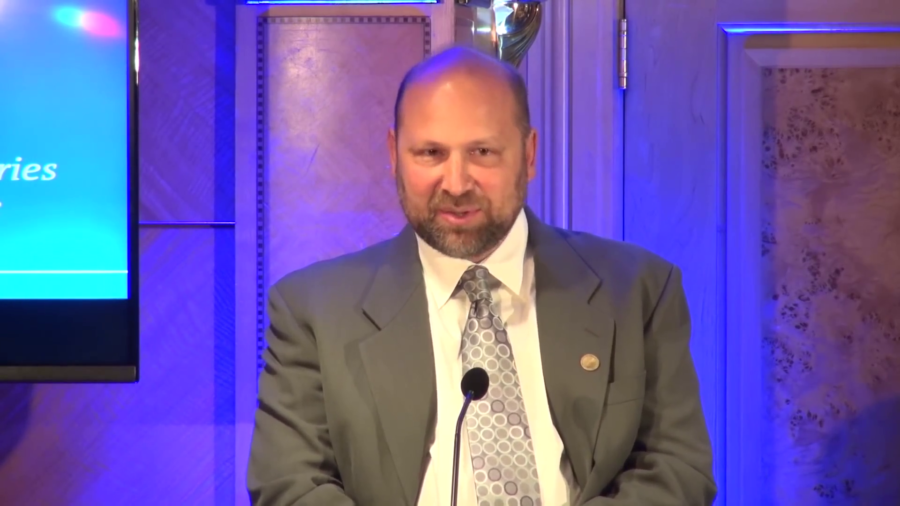Steve Huter: Thank you to the Internet Society and to the Hong Kong ISOC chapter for hosting this event. And to those who nominated me for this honor today. I gratefully accept it as director and leader of the Network Startup Resource Center, though I think this nomination should rightfully go to the body as a group, NSRC, recognizing many others that have contributed to this work.
I came along in the early 1990s to join the Internet development community, at a time when this work was cultivated by a mix of academia, government, and industry. And it was really starting to flourish, and the growth of the Net was starting to explode at that point with two to three new countries joining you know, every every month or two with their full TCP/IP connections.
I met Randy Bush in Portland, Oregon in 1993, where he was connecting a number of countries around the world using FidoNet, UUCPs, intermittent dialup IP links, satellite IP links. All kinds of stepping-stone arrangements that connected Peru, South Africa, Botswana, Namibia, Zambia, Zimbabwe, Belize, Lebanon, Guinea, Saudi Arabia, all were connecting through Oregon, through this work Randy had been doing. And others, that were really designed to help computer scientists and network engineers in those countries provide Internet access and services to their communities.
So I was really intrigued by the work of the NSRC, and one of my first assignments was to do a global survey of the various connections and the types that existed in Asia, Pacific, Latin America/Caribbean, Africa and the Middle East, to try and inform the United States National Science Foundation where new links were emerging, and possibly could be useful for international science and educational collaborations.
And there were also lots of NGOs around at this time that were among the first user communities, taking advantage of Internet communications to enhance their work on health, education, economic development, human rights advocacy. And we always try to team up with these groups, these orgs, so they could use the Internet to enhance their work more effectively.
What inspires me the most, you know, I think about the work that I do, and what I enjoy most about the work that I do is the people. I’ve been so fortunate to work with literally thousands of amazing people in more than a hundred countries from Afghanistan to Zimbabwe. And I think the social engineering that’s required for starting new networks is a really important aspect of the Internet development and it’s often how these things get started. And then ultimately, to build sustainable networks you’ve got to have local hands cultivating local expertise. Hence our effort on so much training and capacity-building with many of the people in this room in various places around the world.
I think I’m always happiest you know, when we’ve completed some challenging work in the field. The networks are happily moving more IP packets to more people. And then my friends in the country invite me and the NSRC team to their homes for dinner. And we meet their families and enjoy some fun times together. And those are the really meaningful memories that I cherish in this work.
Open architecture networking is really what makes the Internet the Internet. And every new node on the net has the potential to be a peer. And I mean that in the physical sense of peering and exchanging data and content, but more importantly in the human sense of being your peer, your collaborator, your friend. And it’s important that we respect all nodes and all people who are part of the Internet community system. Who knows where the next big thing on the net will come from?
Thanks to my family, to my colleagues at University of Oregon, and to all who support me and the NSRC in our Internet development ventures to light up more places and connect more places around the world. Thank you.
